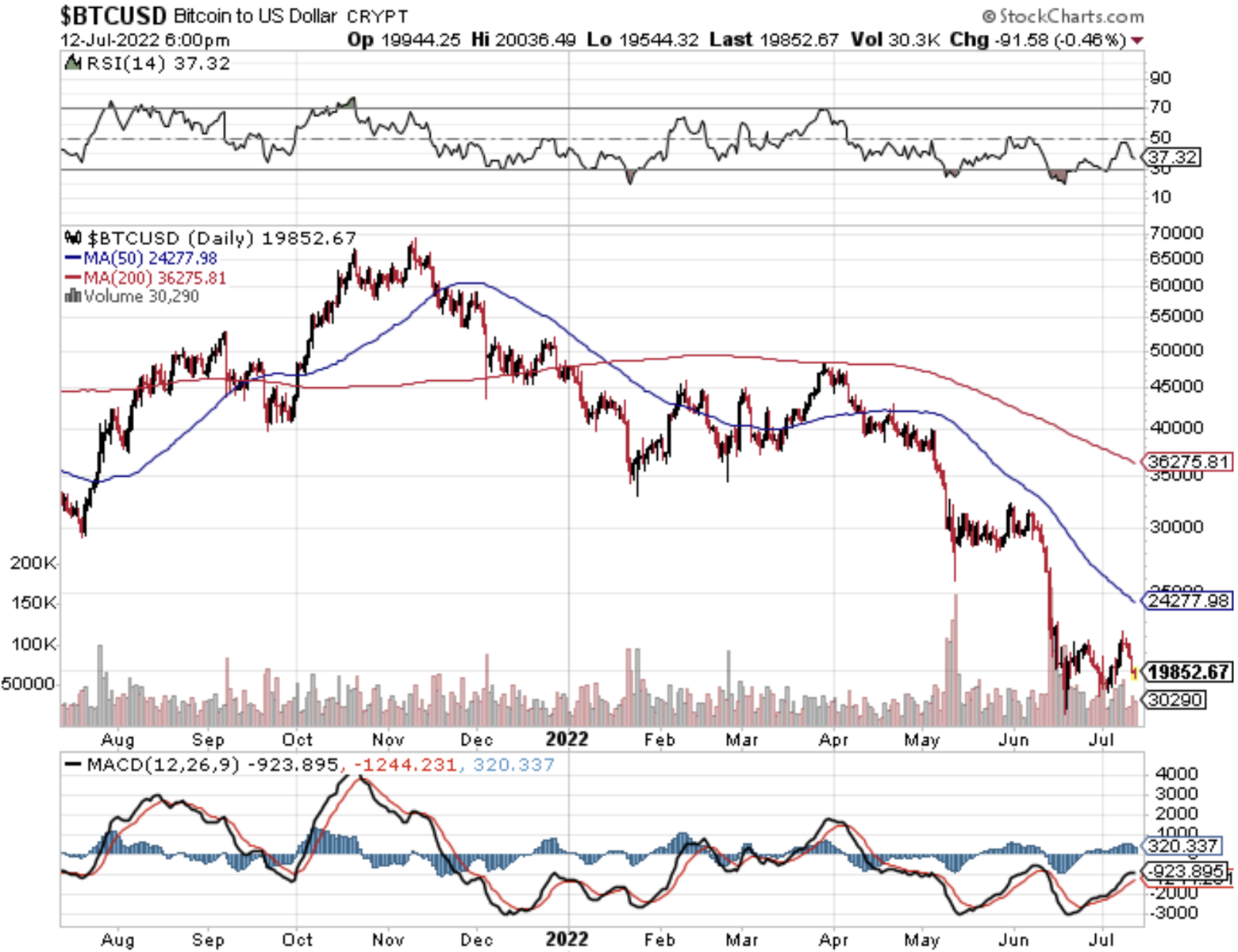Mt. Gox Back From The Dustbin of History
We could shortly experience a supply dump of Bitcoin that would suppress the price of the digital gold even further.
Let me explain.
137,000 bitcoins could be dumped back onto the open market from the notorious Mt. Gox crypto exchange hack which happened 8 years ago.
This is bad news for crypto lovers who have already gone through the gauntlet this year.
Crypto has failed basically every inflection point and the infrastructure is crumbling around us as we speak.
This could be another “Lehman moment” after the numerous crypto exchanges that have already gone bankrupt.
Mt. Gox was originally founded in 2006 by Jed McCaleb as an exchange to trade Magic: The Gathering Online cards (hence the acronym MTGOX).
The card site only operated for a few months before Jed moved on to other ventures.
Then in 2010, Jed started to develop an interest in you guessed it, cryptocurrencies!
He exploited an inefficiency in the market as there wasn't an easy way for users to exchange bitcoin at that moment.
He still had the mtgox.com domain lying around and used it to officially launch a crypto exchange.
After 10 months, Jed sold the exchange to Mark Karpelès at a valuation of 6 months' revenue.
After just a few months with Mark steering the ship, Mt. Gox doubled its trading volume to 20,000 transactions a day.
At the time, it was by far the biggest crypto exchange, handling 70% of all bitcoin trades.
In December 2013, Mt. Gox was doing all-time high revenue and bitcoin had recently breached $1,000 for the first time.
Happy days in 2013 for Mt. Gox or so we thought.
Then a hammer dropped out of nowhere.
By February 2014, customer complaints exploded as user accounts became inoperable. Sounds like now, doesn’t it?
On the 7th, Mt. Gox officially froze withdrawals, citing they needed a "clear technical view of the currency processes."
On the 10th, they admitted to finding a "bug in the Bitcoin software", leading to altered transaction details.
This effectively meant bitcoin could be resent as transactions were labeled as invalid.
After promising to resolve the issue, Mark and the board disappeared, and their website went offline.
On February 24th, a 'crisis management' document was leaked, revealing that Mt. Gox was insolvent after losing an estimated 850,000 bitcoin.
This represents 4% of the 21 million total bitcoin that would eventually be in circulation.
4 days later, Mt. Gox officially filed for bankruptcy.
Here’s where the story really gets twisted.
Mt. Gox released a statement on their website on 20 March 2014, stating that they had located 200,000 of the 850,000 missing bitcoin.
In 2015, Nobuaki Kobayashi was appointed as the rehabilitation trustee by the Tokyo District Court.
His role is to oversee the reconciliation of creditors.
As Kobayashi starts to repay creditors the 200,000 coins of bitcoin of crypto, it could flood the open market with liquidity at a time when bitcoin prices are struggling.
This could potentially knock crypto from $20,000 per coin to $15,000 in one day.
Bitcoin has been madly exposed this year as an asset class that hasn’t been able to stand on its own 2 feet.
What started out with so much promise in November 2021 that many cheered Bitcoin higher, expectations have been left largely unmet.
This is why here at the Mad Hedge Bitcoin Letter, we only recommended investing just a small fraction of one’s net wealth into this speculative asset class.
We were validated with that recommendation and anyone betting the ranch has no understanding of responsible risk control.




